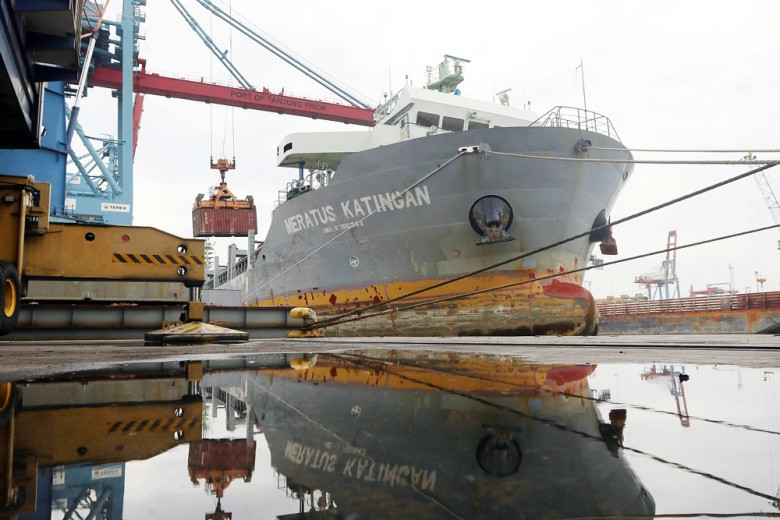Popular Reads
Top Results
Can't find what you're looking for?
View all search resultsPopular Reads
Top Results
Can't find what you're looking for?
View all search resultsIndonesia's exports, imports nosedive in May as COVID-19 restrictions hit trade
Imports fell even faster by 42.2 percent to $8.44 billion, the lowest since 2009, due to weak domestic demand for consumer goods, raw materials and capital goods.
Change text size
Gift Premium Articles
to Anyone
I
ndonesia booked a trade surplus of US$2.09 billion in May as imports fell steeper than the export slump against the backdrop of social restrictions worldwide and supply chain disruption, Statistics Indonesia (BPS) announced Monday.
Exports plunged 28.95 percent year-on-year (yoy) in May to $10.53 billion, the lowest since July 2016, due to falling exports of coal, coffee, palm oil, as well as oil and gas, according to BPS data .
Meanwhile, imports fell even faster by 42.2 percent to $8.44 billion, the lowest since 2009, due to weak domestic demand for consumer goods, raw materials and capital goods.
“Economic development has not been good around the world,” said BPS head Suhariyanto during a news conference. “We are seeing weaker purchasing power, lockdowns, as well as economic contraction for our trading partners, which all have an impact on our trade balance.”
The country’s oil and gas exports declined 42.6 percent yoy to $650 million, while exports of mining products fell 38 percent yoy to $1.33 billion. Exports of manufactured goods dropped nearly 26 percent to $8.31 billion in May.
Imports of consumer goods shrank nearly 40 percent to $930 million due to fewer purchases of air conditioners and washing machines, among other items. Imports of raw materials plummeted 43 percent to $6.11 billion, while imports of capital goods shrank 40 percent to $1.39 billion.
From January to May, the country booked $64.46 billion in exports, a decrease of 5.96 percent, while imports amounted to $60.15 billion from January to May, a 15.5 percent yoy decrease.
Indonesia recorded a trade surplus of $4.31 billion during the first five months of the year, compared to a deficit of $2.68 billion in the same period last year.
Several countries, including China, the United States and Japan, among others, remain Indonesia’s largest trading partners.
Lockdowns and social distancing measures associated with the coronavirus pandemic have sapped global commerce and growth, disrupted supply chains and closed factories and stores.
Several regions in Indonesia have implemented large-scale social restrictions (PSBB) to curb the spread of the virus, forcing businesses to close and people to stay home.
This has reined in consumer spending as people are worried about job prospects and have become pessimistic about economic prospects, according to a consumer confidence index survey published by Bank Indonesia on Friday.
The World Trade Organization (WTO) projected that global trade would shrink between 13 and 32 percent as the economic impact of the health crisis remained uncertain.
The WTO has forecast a rebound in the 2021 global goods trade of between 21 and 24 percent, depending largely on the duration of the outbreak and the effectiveness of policy responses.










